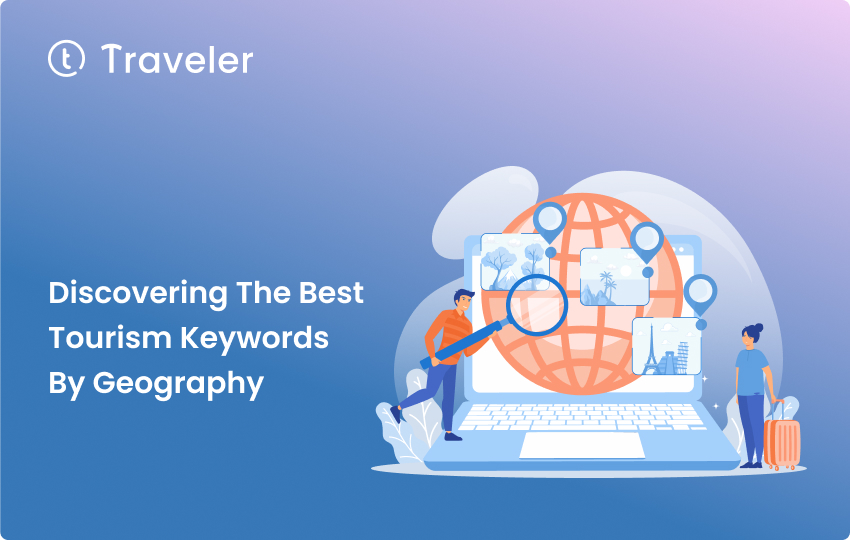
Table of Contents
Besides keyword research, have you ever given serious thought to how consumers find information related to bookings or things to do in a specific location?
Well, as you can see, most travelers have already decided where they will go. For example, “things to do in Singapore “or simply “hotels near me”.
Once they’ve decided where to go, travelers then often search online for places to go or even ideas for an activity close to home.
This is time travel operators should take a look at how to find the best tourism keywords by geography.
No wonder, keywords make SEO work and win. As long as you use the right keywords, you can potentially boost your online visibility, achieve higher rankings, and raise your chances of getting a high-converting rate.
To help your SEO strategy go right, we’ll go through 4 steps to choose your best travel keywords by geography.
Let’s go!
Understanding Tourism Keywords
Definition of tourism keywords
Tourism keywords are phrases or search terms that tourists enter into search engine sites when they are looking for things to do in a certain destination. Today, before starting a trip, most travelers research their destination online.
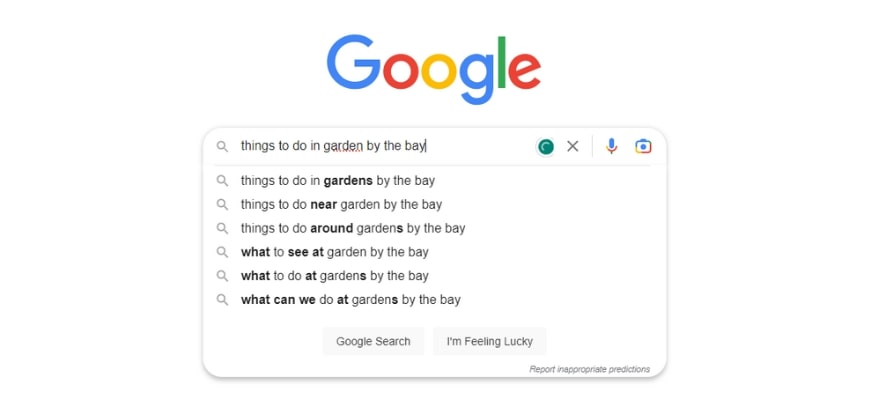
They often consist of a niche descriptor and a geographical modifier, with the form looking something like this:
Niche descriptor + Geographical modifier = Tourism keyword
Example: bike tour + Singapore = bike tour Singapore, or cheap hotel + Orchard Singapore = cheap hotel Orchard Singapore
Importance of using relevant and targeted keywords
Undoubtedly, the most effective way to boost the number of bookings you have is through online marketing including SEO and PPC. In search engine platforms, keywords are what enable queries.
When it comes to SEO, you can incorporate relevant tourism keywords into the content of your website to convince search engines that your company provides the products and services that the user is specifically searching for.
Relevant keywords will drive high traffic to your website, which has a strong potential of turning into bookings.
That’s why it’s essential to optimize your website for Google’s top rankings. Massive traffic from Google’s top page is advantageous for your travel agency.
Different types of keywords
Keep in mind that, depending on the trends and events occurring in the travel industry, keywords are always changing. The ideal keywords for travel websites are those with a large search volume, low competition, and the proper intent.
Here are 4 main types of travel-related keywords to think about, categorized by intent.
1. Transactional intent: Book hotel online
2. Navigational intent: Tour & Activity booking page
3. Informational intent: How to book a hotel online?
4. Commercial intent: Best cheap hotel
Researching Tourism Keywords by Geography
Conducting market research
When people increasingly prioritize leisure travel, as is the case today, more and more travel services have sprouted and the travel business is facing increasing competition.
As such, you must first understand the market and the target audience before beginning keyword research.
By doing a competitive analysis of their tourism-related keywords, you may save a tonne of time and effort while also learning what is and isn’t effective for them.
While keeping tabs on your rivals, you could think about things like the topics (or keywords) they talk about on their websites and blogs. Where and how do they rank?
To focus on a certain audience group, you’ll need to do market research and study your customer persona. Address the following questions to define your ideal customer
- What age group do they fall to?
- What are their jobs?
- Where do they live?
- Where will they visit?
- What do they want for their trip? (travel ideas, booking tours, activities or hotels, etc)
- What are their troubles?
- Which platforms can you most often find them on?
You can picture the target audience for your content using the data you gather from this study. From there, you may develop a winning content marketing plan for your travel website.
In the end, understanding your target audience can help you understand the search terms they would use, which will help you choose the best keywords.
Keyword research tools
For keyword research, there are multiple online resources available. The majority of them need purchase; however, Google offers tools that are free to use (such as Google Trends and Google Keyword Planner) and can point you in the right way for phrases that might work best for your travel website.
Undeniably, tools for keyword research come in handy. The data provided by these tools, which include estimated monthly search traffic, keyword difficulty, clicks, and cost per click (or CPC), is highly helpful.
Here are a few to think about:
1. Google Keyword Planner
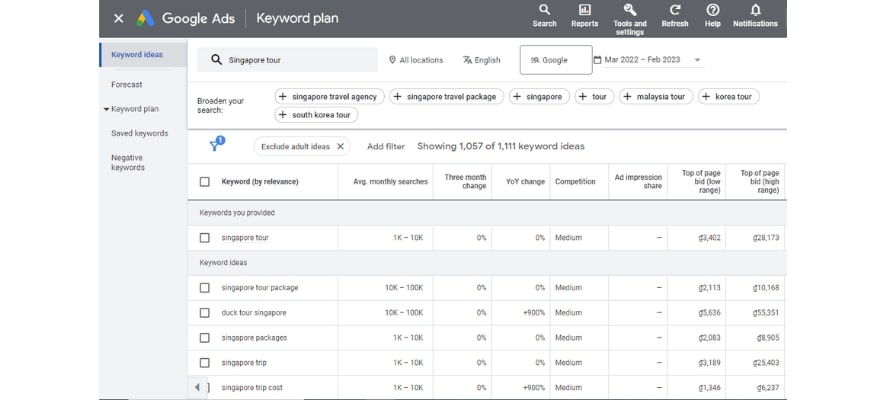
2. SEMrush
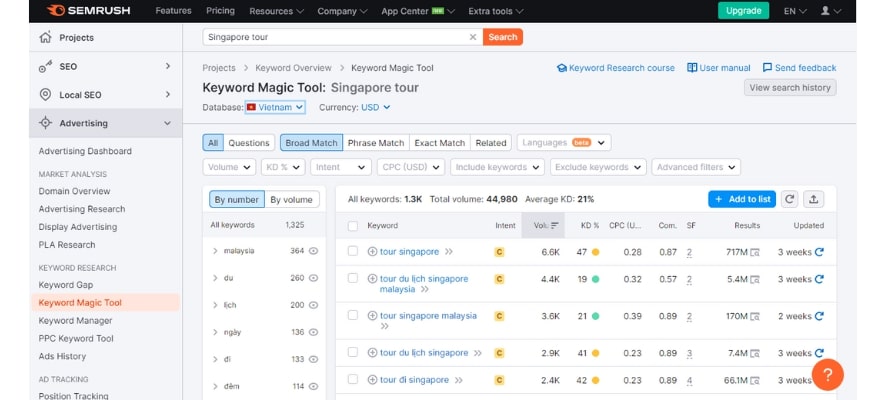
3. Ahrefs
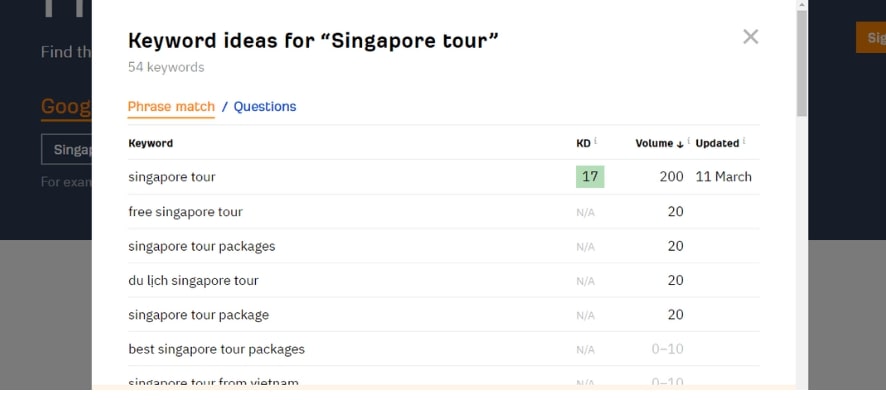
Analyzing search intent
Instead of stuffing keywords for search engines to read, today’s marketers also need to carefully study search intent to deliver quality content to readers and search engines.
The success and popularity of Google as a search engine, according to specialists, can be attributed to its ability to offer its users accurate and useful results. Researching and analyzing the search intents of its users is achieved by linking those searches to the websites that have the most correct solutions.
The way people look for travel services and then eventually book is difficult to understand and thorough, which further complicates matters. So, with a massive number of tourism keywords, identifying what people are searching for and understanding why they are searching for it is a must.
Using Tourism Keywords in Content Creation
Identifying the right keywords
Now it’s time to choose your top choices once you’ve narrowed down your list of potential keywords. You can filter them by their search volume from lowest to highest.
Typically, the majority of marketers want to target the most popular tourism keywords. Nevertheless, don’t overlook low-volume keywords if you run a small travel agency. Low-volume keywords may provide you with a greater chance of ranking and will ensure that they are the most appropriate to your topics.
It has a reason. This is due to the intense competition for high-volume keywords. There is a rule, popular terms generate more search traffic, and they are more competitive. However, most big players in the travel industry often gain these rankings.
When targeting low-volume keywords, don’t worry! Although receiving less search traffic total, low-volume keywords generally convert better due to their increased precision. Hence, focusing on these is obviously a wise strategy to move on. When your SEO as a whole develops, you may ultimately target the larger volume keywords as well.
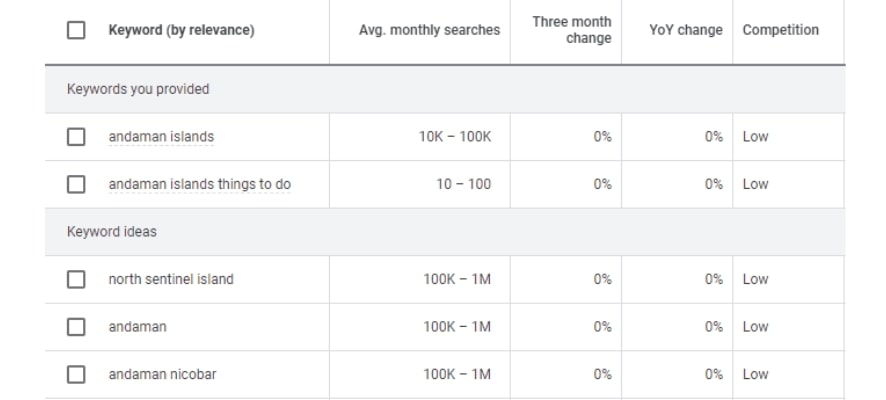
Let’s say you offer a tour to a little-known location, for example, the Andaman Islands. With a low level of competition, you can completely stand at the top of the search, thereby bringing a higher conversion rate. If you offer a tour in which thousands of people also offer, for example, Singapore tours, don’t hesitate to scroll down for a closer analysis of uncommon keywords.
Using keywords in on-page optimization
Here is where you can put your keywords before publishing your content.
You should first do an audit of your on-page SEO strategy. When doing this audit, keep an eye out for the following:
Title: They show Google what the contents of your pages are all about. Make that the main keyword is present and is of a suitable length.
Meta descriptions: They are brief summaries (between 100 and 155 characters) that appear below your page in search results. The meta description for your page should be succinct and accurately depict its content.
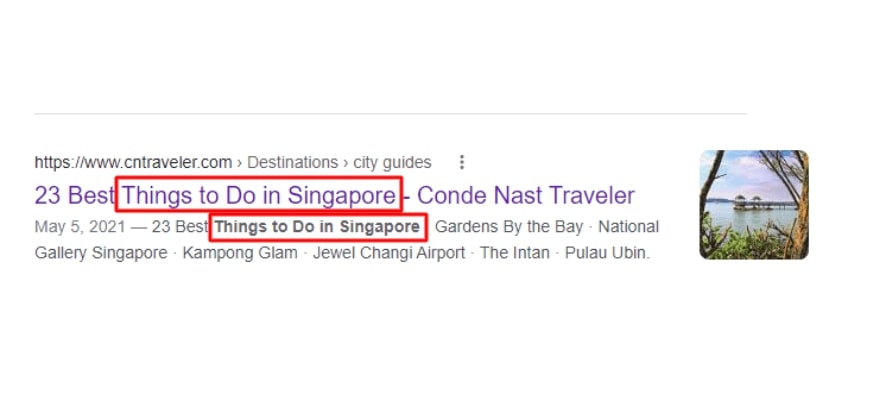
Header tags: Make sure your page’s headers and subheadings (H1, H2, etc.) are properly formatted in HTML and contain both the main keywords and sub-keywords. When identifying the subject matter of your website, search engines attach particular weight to terms that exist in header tags.
Content itself: This is the major body of your booking page, which is often divided into paragraphs. You should incorporate keywords naturally and at a consistent frequency
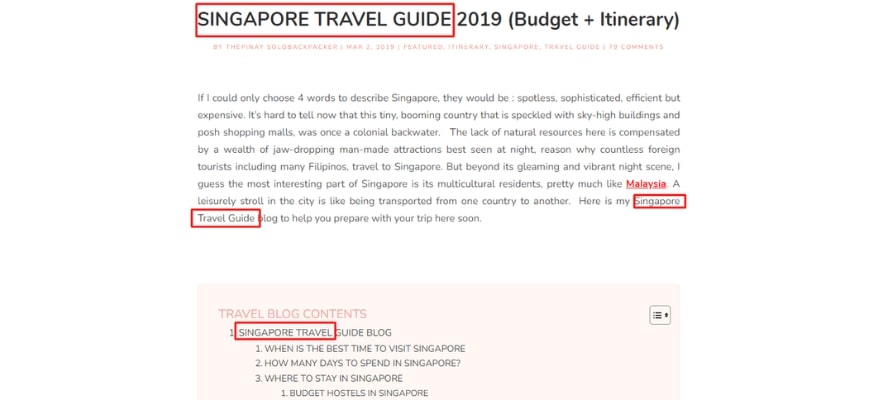
When including keywords in travel content, it’s simple to overdo it. AVOID keyword stuffing! Instead, concentrate on seamlessly incorporating your tourism keywords into your page content and varying your term usage by using the many synonyms in your local keyword list. Or even you can create your new keywords.
Fret not if you feel that putting your geography keywords everywhere would be awkward.
Using keywords in off-page optimization
While on-page SEO takes place on the page itself, off-page SEO occurs outside the website. Simply said, off-page SEO tells Google how other people think about your content.
First, start with creating links with anchor text. Anchor text is significant as it can enable search engines with recognizing the topic of a page. Using keyword-rich anchor text links is one of the most effective techniques to propel your website to the top of search engines.
Furthermore, it should come as no surprise that search engines will believe you have excellent content that offers visitors value if you have a lot of good links going to your sites. Thus, create content that is shareable and linkable.
Besides, finding ways to share such content on social media as well as other platforms may also help you promote your travel services and increase off-page signals.
There are some other off-page optimizations you can consider when promoting your travel content with geography keywords:
- Local reviews
- Events
- Content marketing
- Local SEO with Google Business Profile
Real-World Examples of Tourism Keywords by Geography
Example 1: Hawaii Tourism Authority
1. Researching relevant keywords
With the main keyword “Hawaii Tourism Authority”, we. can conduct deep keyword research with Google Keyword Planner. Here is the result:
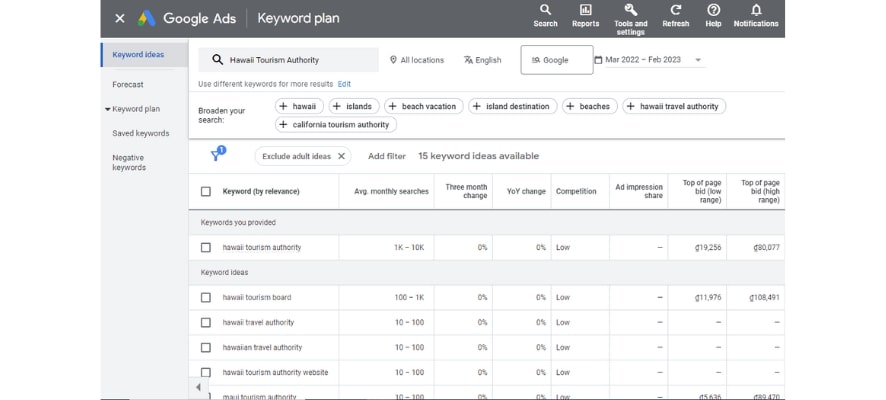
Now we earn some relevant keywords for “Hawaii Tourism Authority” including “hawaii tourism board”, “hawaii travel authority”, “hawaiian travel authority”, “hawaii tourism authority website
2. Optimizing website content
Based on the topic of the article along with a combination of competitor research and target audience, you can create an info-intent article related to “Hawaii Tourism Authority”
For example:
Title: What does the Hawaii Tourism Authority do?
Meta description: With countless tourists yearly, Hawaii has gained millions of dollars. So what does the Hawaii Tourism Authority do to improve the travel service here?
Example 2: Visit California
1. Analyzing search intent
Simply google “visit California”, you will get what people want after searching this term.
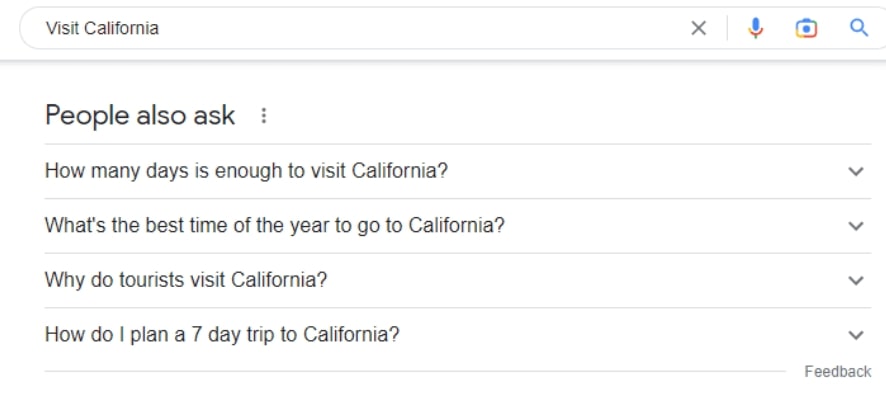
From here, you will get to know what travelers to Califonia are interested in most. People wonder:
- Time to go
- Visit duration
- Travel guide
- Why visit
2. Identifying and using targeted keywords
By now you’ve already known what people search for when planning to visit California. So, you can choose the keywords to create topics related search intent you’ve analyzed. For example, “best time to visit California”, “California travel guide”, “things to do in California”, etc.
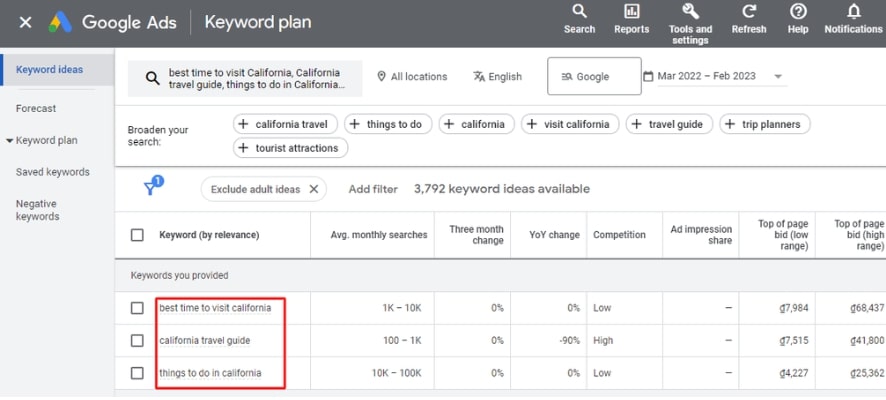
Conclusion
The best geography keywords for travel websites are vital pieces for a winning SEO strategy. It doesn’t stop there, though; you also need great content.
Incorporating the right geography keywords into your travel website is crucial for a successful SEO strategy, especially with the TravelerWP WordPress theme. However, to truly succeed, great content is also essential.
The combination between the best geography tourism keyword and excellent content with the right search intent will get you easily build trust among your target audience and increase your conversion rate.
Here is a summary of the steps involved how to find the best tourism keywords by geography
- Researching tourism keywords by geography: Do market research, analyze search intent, and use keyword tools
- Using tourism keywords in content creation: Create a good keyword list and optimize on- and off-page
